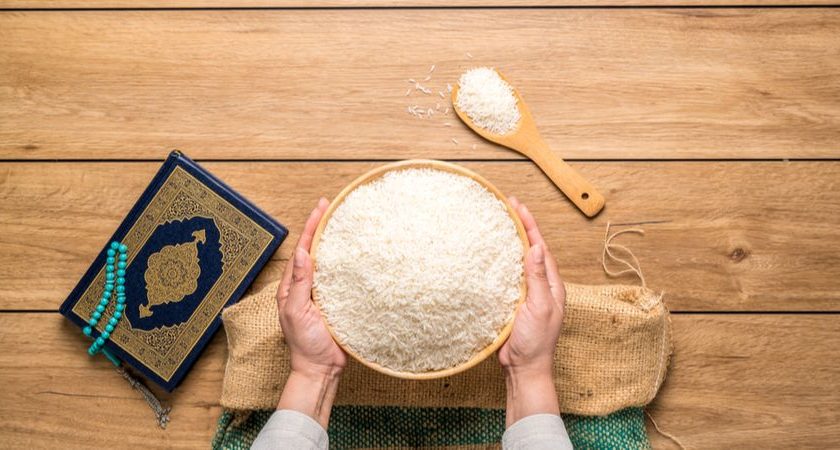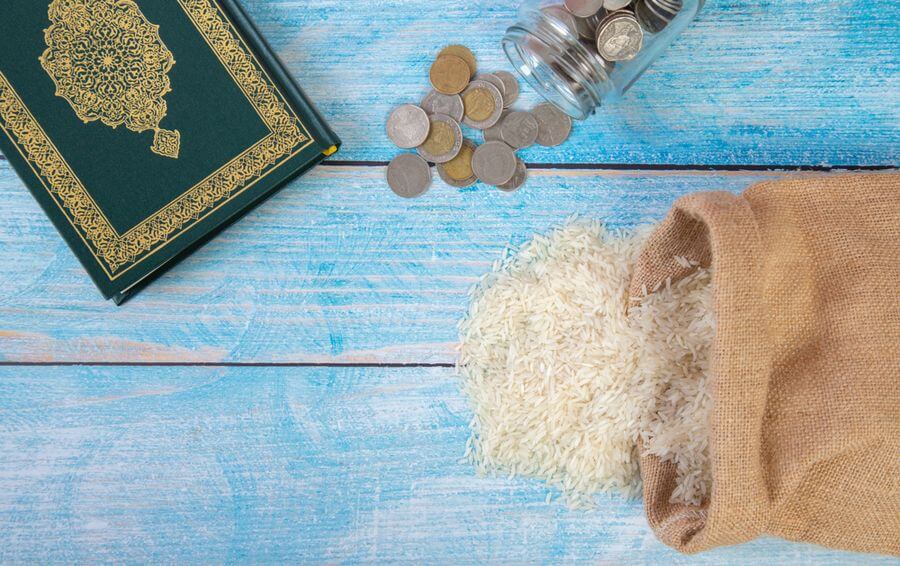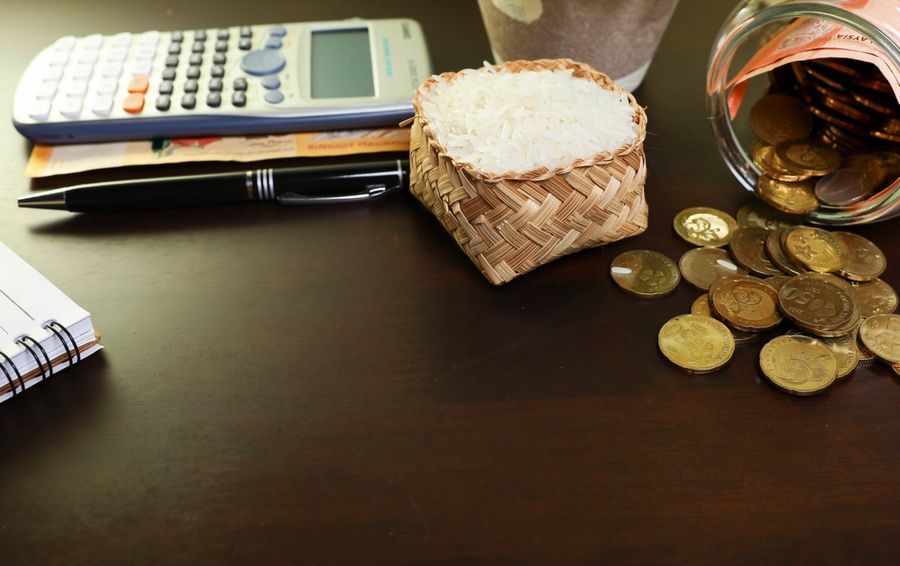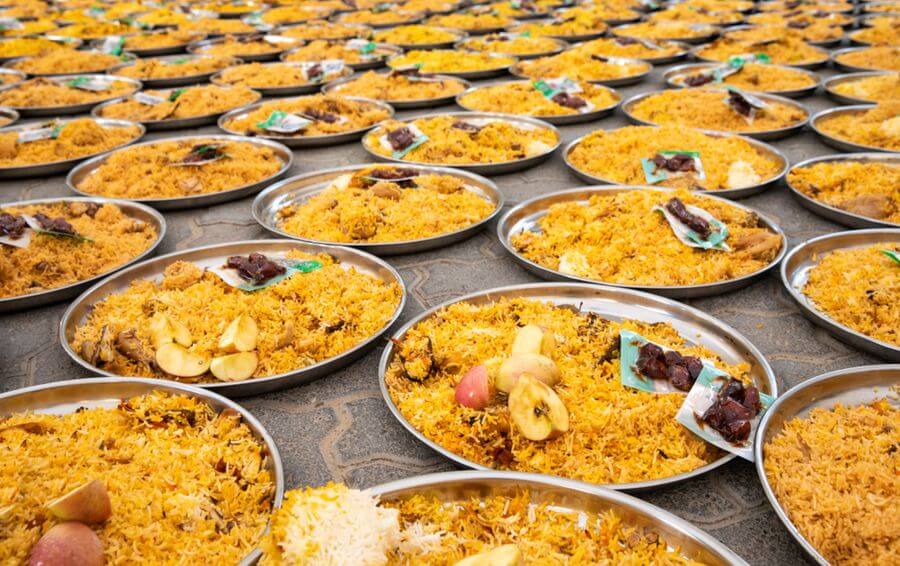
Fasting during Ramadan is an important and gratifying aspect of faith; it is the fourth pillar of Islam and is a tough act of worship. Allah allows Muslims who cannot complete the fast due to circumstances beyond their control to compensate for the fast. The act to compensate for missed fasts is known as the ‘Fidya’. It is an obligatory payment that Muslims must make if they cannot fast for a reasonable cause and will not be able to make up the fasts later. According to Islamic law, one must utilize their Fidya to offer two meals for people in need for every fast they have skipped during Ramadan.
Fidya meaning
Fidyah is a religious monetary or food offering to support those in need. The charity is done in exchange for fasts missed by someone due to illness or old age in Ramadan. Fidya is only accepted for genuine missed fasts and not for deliberate omission of fasting days.
Importance of Fidya

Apart from adding for the missed fasts, fidya helps the community. The food and money offerings help impoverished families all around the world. So, even if one can’t fast because of their illness, Allah rewards them for their contribution to society. Therefore, one must understand the essence of fidya and donate to the society to increase their Iman during Ramadan.
Who can pay Fidya
Fidya is only paid by someone unable to fast throughout Ramadan, cannot make up for the fasts at any other time, and is unlikely ever to regain the capacity to make up for the fasts. An individual must meet all three requirements; otherwise, it becomes void. Muslims must make up for the missed fasts in any other case.
People who are qualified to pay Fidya for not fasting:
- Pregnant women
- People suffering from long-term illnesses
- Individuals who get sick for a brief period during Ramadan
- People on medication
- Muslims over the age of 65
How does Fidya work
Fidya essentially comes down to feeding one impoverished person to make up for the day’s missed fast. While choosing the food, it is necessary to remember that it must be widely known and consumed, rather than being a novelty that the locals may struggle to adjust to. The quantity of Fidya was previously fixed as a provision of grains or wheat weighed by two measuring instruments, which was stated and applied by Prophet Muhammad (PBUH) in prophetic history. The first tool is a Sa’, a little container that holds 4 double-handfuls of grains, and the second tool is a Mudd, which contains one double-handful of grains.
Fidya calculation

Traditional tools
The quantity of Fidyah is believed to be equal to a Sa’, half of a Sa’, or a Mudd. Sa’ and Mudd are instruments with customary volumes of measure that date back to the Prophet’s (PBUH) period but are no longer in use. As a result, today’s Fidyah computation is based on an approximated translation of the quantity of grain contribution from these measures to grams/kilograms. Although there is a discrepancy in the precise equivalent weight, the following are the two most usually proposed calculations:
Measurement tools
- Mudd (1 Double-Handful) = 0.650 kg and 0.675 kg
- Half A Sa’ (2 Double-Handfuls) = 1.3 kg and 1.35 kg
- Sa’ (4 Double-Handfuls) = 2.6 kg and 2.7 kg
Local currency
It is also possible to pay the value of Fidya in a currency amount. The amount paid in currency must be equal to the needed food measurement, and the funds will be utilized to purchase food that can be distributed to the underprivileged. This sum varies in every country, based on various criteria such as currency and market value of staple food.
Mathematical formula: Individually, the amount may be computed using the following formula:
Number of missed Fast x Price of Food (KG) = Amount of Fidyah Due.
Best reasons to pay Fidya

1. Serving people in need
Paying Fidya helps people in need. This implies that an individual’s fidya will significantly impact someone’s life who does not have access to proper, nutritional meals throughout Ramadan.
2. Paying Ramadan Fidya can be someone’s Iftar
Many Muslims prefer to wait until Ramadan begins before making donations, and some even want to wait until the last ten days. Further, a handful of people wait until the Laylatul-Qadr to receive the greatest rewards for their donations. However, it is not as per the Islamic ways of donation. Giving fidya early in the month of Ramadan is more worthy than delaying the contribution till after Ramadan. Also, providing Fidya early ensures that it may be transformed into an Iftar for someone in the later days of Ramadan.
Where to donate the Fidya
Previously, the Fidya was managed by the individual and distributed to people in need within their group and circles. Various institutions, and platforms are now assisting with the Fidya disbursement process. These have aided in the organization and distribution of the Fidya per the demands of the modern world’s population. Additionally, as the Muslim population grows, these institutes ensure that Fidya reaches the appropriate parties worldwide and that the whole global Muslim community is included in the process.
Allah (SWT) mentions in the Quran:
“Fast for a specific number of days, but if one of you is ill, or on a journey, on other days later. For those who can fast only with extreme difficulty, there is a way to compensate- feed a needy person. But if anyone does good of his own accord, it is better for him, and fasting is better for you if only you knew”.
– Qur’an 2:184
Fidya donations may make a tremendous impact on the lives of the world’s most vulnerable and needy individuals. Muslims can provide a nutritious Iftar and Suhoor meal to these individuals through Fidya for missed fasts. Further, one should not omit fasting deliberately as it is one of five pillars of Islam.
Fidya FAQs
What is Fidya of roza?
It is an amount of money or food that one must donate for each missed fast due to unforeseeable circumstances.
What is the formula for calculating Fidya?
The formula for calculating Fidya is Number of Missed Fast x Price Of Food (KG) = Amount of Fidyah Due
Where to donate Fidya?
The Fidya payout process is currently being aided by several online platforms and institutions.
Who is eligible for Fidya?
Pregnant Women, individuals with illnesses, persons on medication, individuals above 65 years of age are eligible for the donation.
What traditional measuring tools were used to measure Fidya in the past?
Sa and Mudd are the traditional measuring tools to measure Fidya.
source : https://zamzam.com/blog/fidya/
Post Disclaimer | Support Us
Support Us
The sailanmuslim.com web site entirely supported by individual donors and well wishers. If you regularly visit this site and wish to show your appreciation, or if you wish to see further development of sailanmuslim.com, please donate us
IMPORTANT : All content hosted on sailanmuslim.com is solely for non-commercial purposes and with the permission of original copyright holders. Any other use of the hosted content, such as for financial gain, requires express approval from the copyright owners.
 Sri lanka Muslims Web Portal Sri Lanka Muslims News Center
Sri lanka Muslims Web Portal Sri Lanka Muslims News Center
 Donate
Donate
